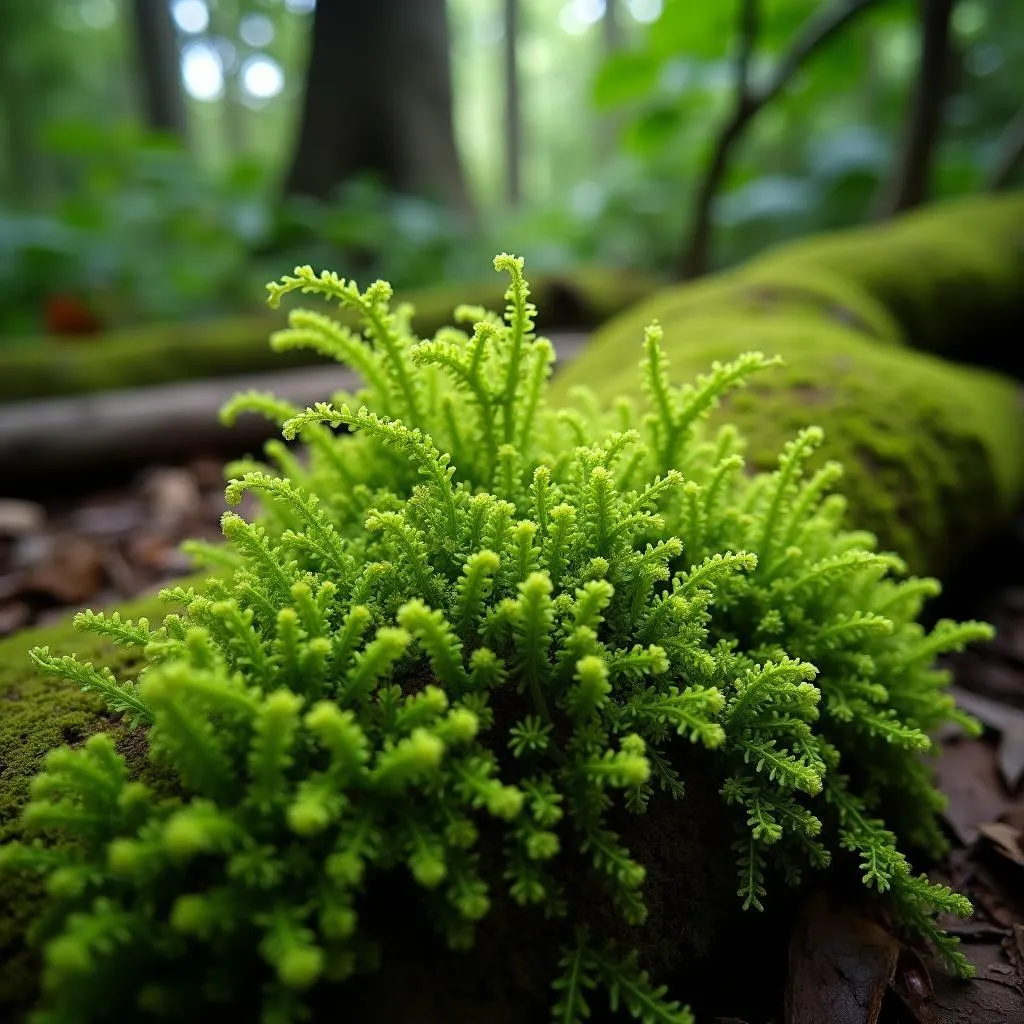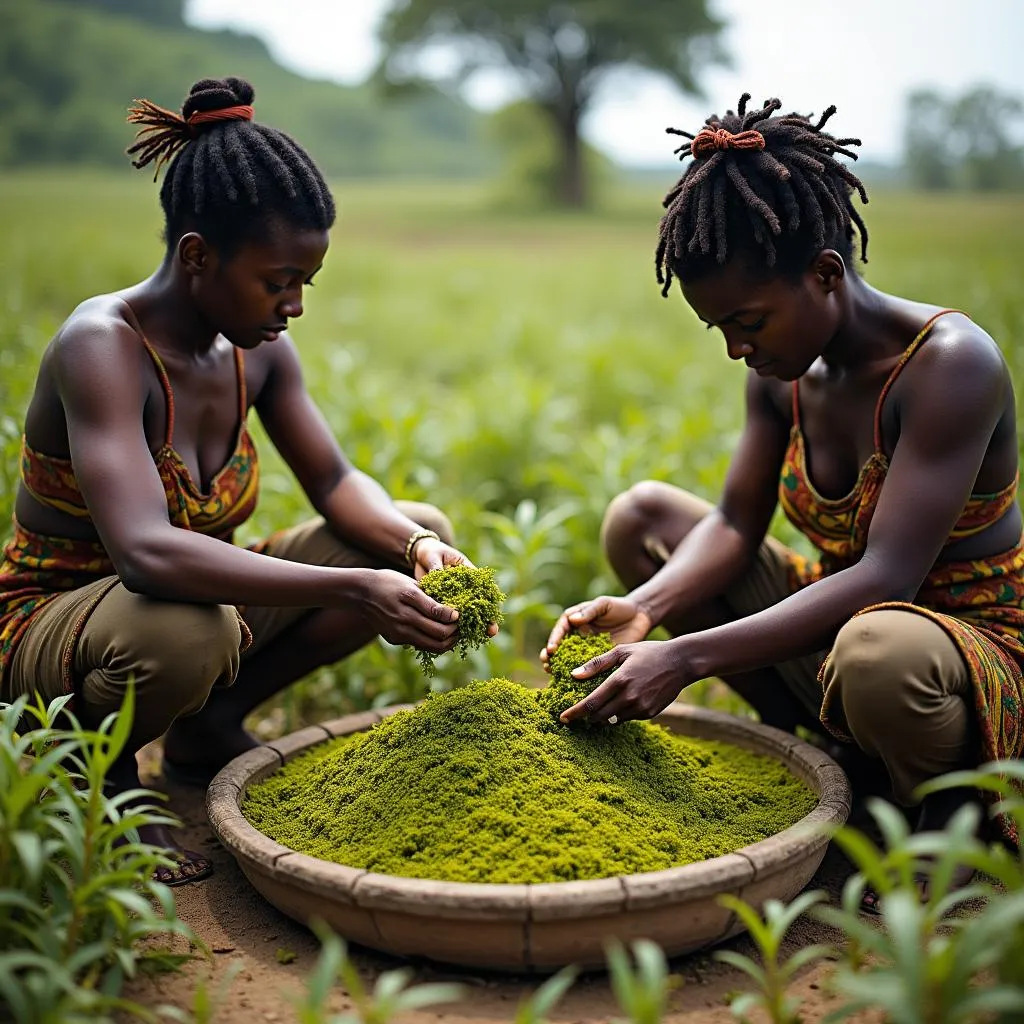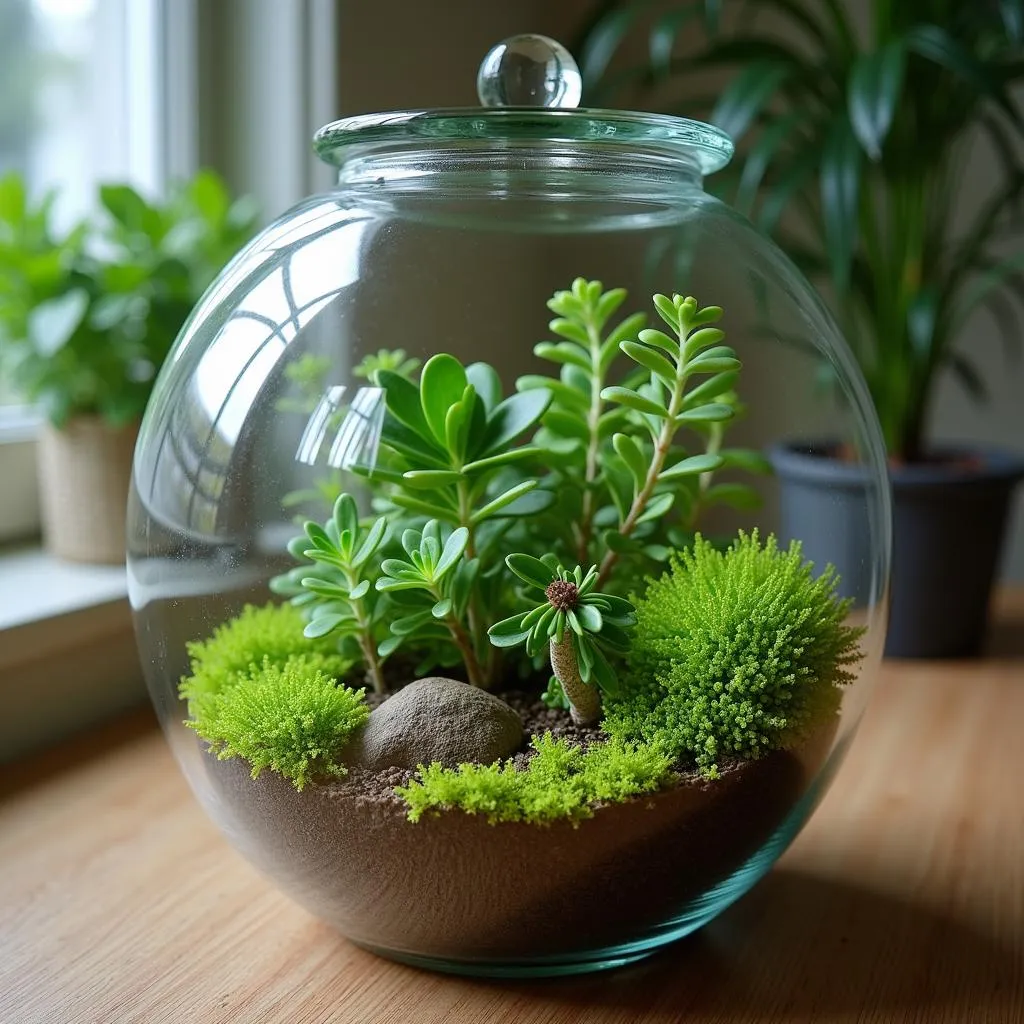Unveiling the Mysteries of African Club Moss: A Journey into Nature’s Miniature Wonderland
African Club Moss, scientifically known as Selaginella kraussiana, is a fascinating creeping plant that thrives in the humid, shady undergrowth of tropical African forests. Its delicate, fern-like fronds and vibrant green hues belie a resilience and adaptability that have allowed it to flourish for centuries. This article delves into the unique characteristics, cultural significance, and potential uses of African club moss, unveiling the hidden wonders of this often-overlooked gem of the plant kingdom.
A Closer Look at African Club Moss: Appearance and Habitat
Imagine miniature forests carpeted in emerald green, where tiny, scale-like leaves cling to delicate stems, creating a mesmerizing tapestry of textures and patterns. That’s the captivating beauty of African club moss. This evergreen perennial typically reaches a height of 6-8 inches, spreading horizontally via slender, creeping stems that readily root at the nodes. The leaves, technically called microphylls, are arranged in a spiral pattern, giving the plant a lush, multi-dimensional appearance.
 African club moss flourishing in its natural habitat
African club moss flourishing in its natural habitat
While it thrives in shady, humid environments, African club moss displays remarkable adaptability. It can tolerate a range of light conditions, from deep shade to bright, indirect sunlight. This hardiness, coupled with its ability to retain moisture effectively, makes it a popular choice for terrariums, fairy gardens, and indoor hanging baskets.
Cultural Significance and Traditional Uses
In many African cultures, plants are not merely decorative elements but integral parts of their belief systems and traditional practices. African club moss, with its vibrant life force and ability to thrive in challenging conditions, holds a special place in the hearts of many communities.
 Preparing African club moss for medicinal use in a rural African village
Preparing African club moss for medicinal use in a rural African village
For instance, in some regions, the plant is believed to symbolize prosperity and good fortune. Its presence in and around homes is considered auspicious, attracting positive energy and warding off negative influences. Traditionally, African club moss has been used for various medicinal purposes. Its leaves are believed to possess anti-inflammatory and analgesic properties, making them a sought-after remedy for treating minor cuts, burns, and skin irritations.
African Club Moss in Modern Horticulture and Beyond
Today, African club moss is gaining popularity as a versatile and low-maintenance ornamental plant worldwide. Its ability to add a touch of natural elegance to both indoor and outdoor spaces makes it a favorite among gardening enthusiasts. Its resilience, coupled with its tolerance for varying light and humidity levels, makes it an excellent choice for beginners and experienced gardeners alike.
 African club moss as a captivating element in a contemporary terrarium
African club moss as a captivating element in a contemporary terrarium
Beyond its aesthetic appeal, researchers are increasingly exploring the potential of African club moss in various fields. Its ability to accumulate certain heavy metals from the soil has sparked interest in its use for bioremediation—a process that uses living organisms to remove pollutants from the environment.
Conclusion: Appreciating the Wonders of African Club Moss
From the heart of African forests to homes and gardens around the world, African club moss continues to captivate with its delicate beauty, resilience, and versatility. As we’ve explored, it’s more than just a pretty plant; it’s a testament to nature’s ingenuity, a symbol of cultural heritage, and a potential source of solutions for a sustainable future.
So, the next time you encounter this miniature wonder, take a moment to appreciate its unique charm and the stories it whispers of resilience, adaptability, and the interconnectedness of life on Earth.
For any inquiries or assistance, please contact us at +255768904061, email us at kaka.mag@gmail.com, or visit us at Mbarali DC Mawindi, Kangaga, Tanzania. Our dedicated customer support team is available 24/7 to assist you.

